
Jordan
I am the youth pastor at Calvary Baptist Church in Fayette, Alabama. I also blog on a regular basis.
Occupation
Youth Pastor
Libraries
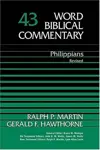

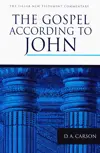

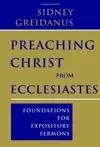

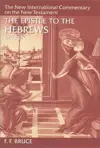

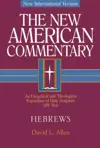

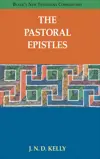

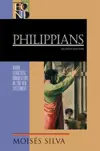

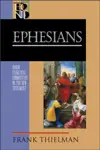

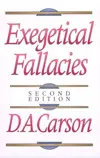





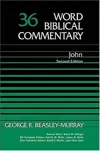

![The Letter to the Hebrews [Withdrawn]](https://bestcommentaries.com/images/bookthumbs/4075-thumb.webp)
![The Letter to the Hebrews [Withdrawn]](https://bestcommentaries.com/images/bookthumbs/4075-thumb.webp)
![The Letter to the Hebrews [Withdrawn]](https://bestcommentaries.com/images/bookthumbs/4075-thumb.webp)
![The Letter to the Hebrews [Withdrawn]](https://bestcommentaries.com/images/bookthumbs/4075-thumb.webp)


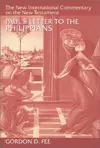





Reviews
Job. BCOT. Baker Academic, 2012.
Tremper Longman III has written an excellent commentary on one of my favorite books of the Bible: Job. This commentary completes the Baker Commentary on the Old Testament Wisdom and Psalms series (in which series Longman also wrote the Proverbs volume). In his Introduction to Job, Longman helpfully avoids speculations as to the book's composition history; his task is to interpret the book as it has come down to us. This Longman does ably and thus defends the authority and reliability of the Bible. Longman also structures Job in his Introduction into seven sections: The Prologue (1:1-2:13), Job's Lament (3:1-26); The Debate Between Job and His Three Friends (4:1-27:23); Job's Monologue (28:1-31:40); Elihu's Speech (32:1-37:24); Yahweh's Speeches and Job's Responses (38:1-42:6); and Job's Restoration (42:7-17).
In the commentary proper, Longman provides his own translation of Job's text. His translation is readable but faithful to the original languages. Before commenting on individual thought units within Job's chapters, Longman summarized that section's message. These sections were very helpful in clarifying the progression of thought within individual chapters. Even more helpful are the Theological Implications sections at the end of each commentated section. If not giving direct application, the Theological Implication "reflective essays" at least drew out the broader implications of any given section of Job, oftentimes pointing explicitly to how the New Testament takes the principles espoused in Job and explicates them.
Despite the commentary's excellence, however, there were a couple of points on which I disagreed with Dr. Longman. As I have written extensively in an earlier post, I believe that Longman is wrong in identifying Job's accuser as an angel other than the fallen angel, Satan. My other primary disagreement with Longman comes later in the book of Job. In discussing Elihu's speech of Job 32-37, I believe Longman was, at times, too harsh in his criticism of Elihu. Yes, Elihu was wrong at certain points, but even Job acknowledged that he had "uttered what [he] did not understand" (42:3). Longman never stigmatized Job for his evident shortcomings, but although Elihu is certainly not the titular character, I do not believe him to be deserving of the measure of harshness that Longman dishes out to him.
These two caveats, though, do not prevent me from wholeheartedly recommending Longman's Job to any teacher or preacher who wants to exposit this book of the Bible. Longman was erudite but evangelical throughout the commentary; he was academic without eschewing pastoral consideration. For this he is to be commended. This is a commentary that I will readily turn to whenever I preach or teach Job. 4 out of 5 stars.
I am grateful to Baker Academic for providing me an advance review copy in return for an honest review.
[Full Review]
Hebrews. NAC. B&H Academic, 2010.
The Lukan authorship theory is interesting and valuable. He sometimes disparages other commentators in favor of his loss of rewards interpretation of the warning passages, though. Due to the format of the NAC series, his disagreements sometimes seem harsher and more dismissing than they are probably meant to be.
The Epistle to the Hebrews (Rev. ed.). NICNT. Eerdmans, 1996.
Bruce's work is lighter than either Lane or O'Brien. Though exceedingly valuable, particularly in the expositional chapters (7:1-10:18), Lane and O'Brien's commentaries are just a slight cut above Bruce's work, I believe.
The Letter to the Hebrews [Withdrawn]. PNTC. Eerdmans, 2010.
O'Brien's commentary is truly just as good as Lane's, and more readable at that! I could not more highly recommend this commentary on Hebrews.
Hebrews. 2 Vols. WBC. Thomas Nelson, 1991.
Lane's commentary is, indeed, the best commentary on Hebrews. Although O'Brien is more readable at times, Lane's scholarship is unmatched in contemporary commentaries on Hebrews. In his preface to this commentary, Lane writes that his work "has been an act of love and devotion to God and to the Church. May it serve the Church and the guild ewll by directing attention to the remarkable gift we possess in the discourse that we call Hebrews" (xiii). Having read this commentary, I can attest that Lane's desire for his commentary's usefulness has been met in at least one preacher and church. Doubtless it has served other churches well, too, as well as the "guild" of seminaries throughout the evangelical world. Though not infallible (no book but the Bible is), Lane's commentary deserves the highest recommendation.
Philippians (Rev. ed.). WBC. Thomas Nelson, 2004.
This commentary is a mid-length commentary; roughly in between the length of Silva and Fee, the two other Philippians commentaries I own. However, of these three commentaries, this one by Hawthorne and revised by Martin is my least favorite. Its strength was its exposition of Philippians 2:6-11, particularly in seeing that 2:6-11 is the "kerygmatic center of Philippians." However, the commentary has numerous weaknesses. Like Silva, Hawthorne-Martin provide their own translation; unlike Silva, Hawthorne-Martin often (as opposed to rarely) depart from traditional translations. Their occasionally radical departure from traditional translation/interpretation hinder their commentary from being as expositionally valuable as either Fee's or Silva's, in my opinion. Also, their use of the WBC format is less reader-friendly than either Mounce (Pastoral Epistles) or Lane (Hebrews). If you have the entire WBC set, it is worth reading, but if you don't have this commentary, I wouldn't recommend buying it on its own.
[Full Review]
Paul's Letter to the Philippians. NICNT. Eerdmans, 1995.
This is the heftier of the two commentaries I read on Philippians (the other was Silva's). It was more in-depth and where Silva erred, Fee was correct. I did, however, find this commentary to be less readable and less user-friendly than Silva's. Scholastically, this work is superior to Silva's, but Silva provided a better reading experience, in my opinion. Nevertheless, this commentary is invaluable in counterbalancing Silva's less-than-perfect ideas (though those are few), and I would highly recommend this commentary to anyone. (In fact, if you buy only one commentary on Philippians, buy this one, rather than Silva's, simply because this is the more thorough commentary and contains less exegetical and interpretive errors, in my opinion.)
Philippians (2nd ed.). BECNT. Baker Academic, 2005.
The length and format of this book is perfect. This was the first single-book commentary I read, and it was a pleasure reading Silva's commentary on Philippians. I agreed with his exegesis and interpretation at least 9 times out of 10, and my handful of disagreements with him spurred greater mental effort on my part when preparing sermons on Philippians. Silva was scholarly without being overly technical; I highly recommend this commentary to anyone who wishes to preach through Philippians. (However, if you are buying only one commentary on the Philippians, do not purchase this one. The NICNT commentary is a better choice if you wish only to purchase a single commentary.)
